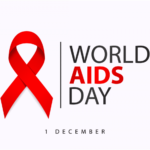Condoms and education are key to safe sex in Africa

Sexual health is a vital part of overall wellbeing, yet across Africa millions of people continue to face challenges related to sexually transmitted infections (STIs) and unintended pregnancies. According to the World Health Organization (WHO), Sub-Saharan Africa bears the highest global burden of new HIV infections and has some of the world’s highest rates of unplanned pregnancies.
The good news is that most of these outcomes are preventable. By promoting safe sex practices, improving access to contraceptives, and addressing cultural and social barriers, Africans can protect their health, safeguard their families, and build stronger communities.
The Burden of STIs and Unintended Pregnancies in Africa
-
STIs in Africa: HIV is still the most recognized infection, but millions silently live with syphilis, gonorrhea, chlamydia, and HPV. Many people never get tested due to stigma or lack of accessible clinics, which increases the risk of complications and further spread.
-
Unintended pregnancies: High rates of teenage pregnancy and unplanned births have significant consequences. Young women may drop out of school, face unsafe abortions, or struggle with financial hardship. Unintended pregnancies also strain public health systems and contribute to cycles of poverty.
These realities show why safe sex education and medication adherence must be a priority across Africa.
Core Safe Sex Practices Everyone Should Know
1. Condom Use
Condoms remain the most effective tool for preventing both STIs and pregnancy. Male and female condoms are widely available, but myths often discourage consistent use. Some people believe condoms reduce pleasure or that they are “only for unfaithful people.” In truth, consistent condom use is one of the simplest ways to protect your health.
2. Contraceptive Choices
Contraceptive pills, injectables, implants, and intrauterine devices (IUDs) are reliable for pregnancy prevention but do not protect against infections. The best approach is dual protection—using condoms along with another contraceptive method. This ensures both pregnancy prevention and STI protection.
3. Regular Testing and Screening
Routine HIV and STI testing is essential for anyone who is sexually active. Knowing your status protects you and your partner, and helps reduce stigma around testing. Testing should be paired with counseling to encourage safe practices.
4. Open Communication and Consent
Healthy sexual relationships are built on trust. Talking with your partner about contraception, STI history, and boundaries prevents misunderstandings and unsafe practices. Consent is also a cornerstone of safe sex—every act must be mutual and respectful.
5. Limiting Multiple Partnerships
Having many partners increases the risk of exposure to infections. While abstinence and monogamy are personal choices, reducing the number of partners lowers risk significantly.
Challenges Unique to Africa
Cultural Taboos
In many African societies, talking about sex is considered shameful. Parents may avoid the subject, and schools may offer limited sex education. This leaves young people relying on peers or misinformation. Partnering with community leaders, religious groups, and schools can normalize accurate, respectful conversations.
Limited Access to Healthcare
Rural communities often lack affordable access to contraceptives, HIV medication, and STI treatment. Digital health platforms like HubPharm Africa are helping by delivering medications, reminders, and discreet access to sexual health products.
Gender Inequality
Women and girls may lack the power to negotiate condom use or choose contraception. Empowerment programs, education, and involving men in sexual health conversations can help close this gap.
Misinformation and Myths
Beliefs such as “contraceptives cause infertility” or “STIs are spiritual curses” discourage many from seeking medical help. Evidence-based campaigns led by trusted healthcare providers are essential to debunk these myths.
Solutions for a Healthier Future
-
Government role: Make contraceptives, HIV treatment, and STI screening widely available and affordable.
-
Healthcare providers: Deliver confidential, stigma-free, youth-friendly services.
-
Community role: Encourage open dialogue, promote respect, and break the stigma around sexual health.
-
Technology: Use mobile apps, telemedicine, and pharmacy platforms to send medication reminders, provide education, and offer discreet delivery of condoms and contraceptives.
Key Takeaway
Safe sex practices in Africa are not just about preventing infections or unplanned pregnancies. They are about empowerment, dignity, and health equity. With the right education, consistent use of protection, and improved access to healthcare, Africans can take control of their sexual health.
A healthier continent begins with informed choices—because safe sex is smart sex.
Written by Fawzi Rufai, Medically Reviewed by Sesan Kareem



